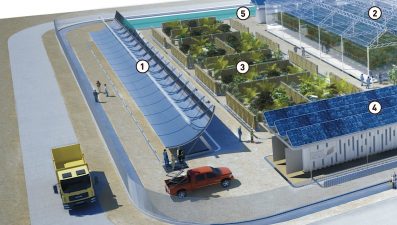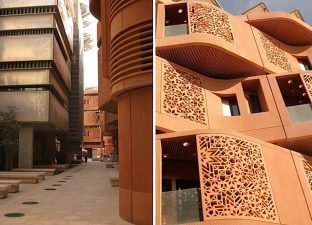Saudi Arabia officials meet for nanotech desalination investment
The development of nanotech membranes for use in desalination is one of the new ideas Saudi Arabia’s King Abdullah is considering to modernize the Kingdsom’s 80-year-old oil-powered desalination technology.
Two things need to be accomplished. As peak oil continues to deplete oil production now used to generate the electricity for desalination, the nation, now entirely dependent on seawater, must transition to the use of concentrated solar power to replace oil-powered desalination, or risk real water deprivation.
Nanotech membranes are to provide the second big change from the oil-powered desalination of the 20th century to the renewably powered desalination in the 21st.
Currently Saudi Arabia pumps desalinated water through 4,157 kilometers of pipelines and has 29 stations to pump water to 168 reservoirs with a capacity of up to 9.5 million cubic meters.
Desalination is becoming an increasingly larger budget item for the Kingdom. Although it has spent almost 95 billion Saudi Rials on desalination over the last 80 years, investment almost doubled this year from last year with a new 14 billion invested in 2010 alone, in opening the worlds largest desalination plant to date. However, it is potentially limited, due to its to oil-powered generation.
Last month Saudi Arabia announced plans for the Middle East’s first international centre for research and innovation in nanotechnology at the King Abdullah Institute at the King Saud University. The country has launched its first nanotech company for the manufacture of nano-membranes for use in the petrochemicals and desalination industries.
Professors at the universities affected say that the recent nanotechnology research initiatives will help in producing a local scientific workforce, and keep pace with worldwide nanotechnology developments.
Currently the Kingdom is reliant on foreign research. But the need to keep pace with nanotech worldwide is crucial, and especially so in these two areas of national interest such as water and renewable energy.
Image: Syed Muneer




